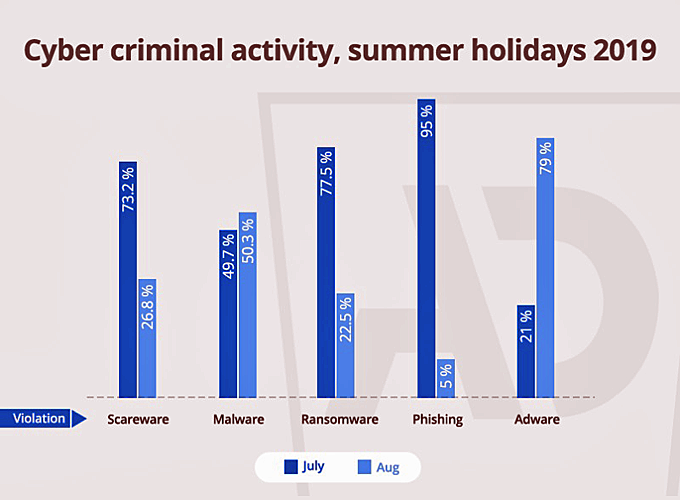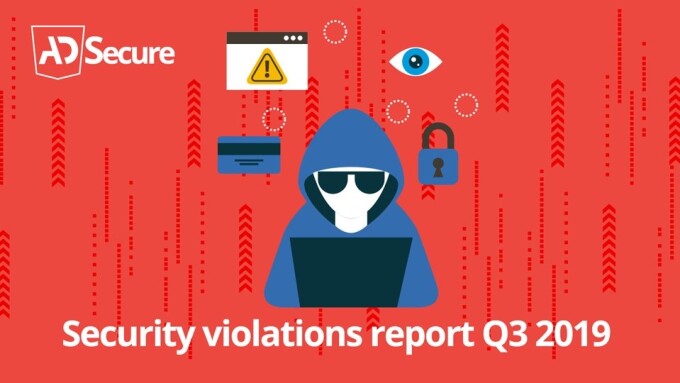DUBLIN — AdSecure has released its third Security Violations Report, this time covering Q3.
AdSecure is an ad verification solution used by ad networks, ad operations teams and publishers. For its report, the company analyzed over 300,000 ad campaigns across multiple regions, devices and browsers for its partners between July 1 and September 30.
The company was interested in seeing what cybercriminals did during the Summer in Europe when residents traditionally take their vacations; and according to the World Economic Forum, the majority of Europeans holiday in Europe, so AdSecure looked at detections for five security violations in Europe during this time.
Among its findings, ransomware and scareware dropped by two thirds in August, compared to July, however, AdSecure noted that criminals concentrated their scareware attacks on iPhones, with 67.3 percent detections on Mobile Safari, presumably in an attempt to take over holidaymakers’ mobile phones.
Malware had no real change over the period showing that malware attacks remain high, while phishing saw the biggest overall drop; as many people were on holidays and not checking personal and work emails, with the decline in phishing, it appears that criminals shifted their focus on to adware distribution.
Adware rose significantly in August with cybercriminals preferring to target mobile devices (95.5 percent were detected on mobile) with criminals perhaps assuming few holidaymakers take their laptops abroad.
“Cybercriminals don’t take holidays in July and August and continue to target potential victims,” AdSecure’s Product Manager Mat Derval said. “They adapt their types of attacks and device distribution in order to try to trick victims during the holiday season, especially on mobile.”
“For scareware attacks, 78.7 percent were detected on mobile with 67.3 percent on Safari and 32.7 percent on Android. Similarly, with adware, 95.5 percent of attacks detected were also on mobile devices,” Derval added. “Scareware is a strong tactic to distribute adware. Since most of the time, the apps that scareware asks you to install to repair your phone or fix some viruses, actually contain adware or malware.”
With one out of every 250 scans carried out by AdSecure revealing some type of malware during Q3, AdSecure has created an infographic with some of their key findings during this quarter’s Security Violations Report.

For more information, visit AdSecure.com.








